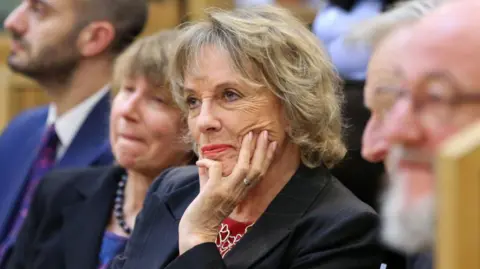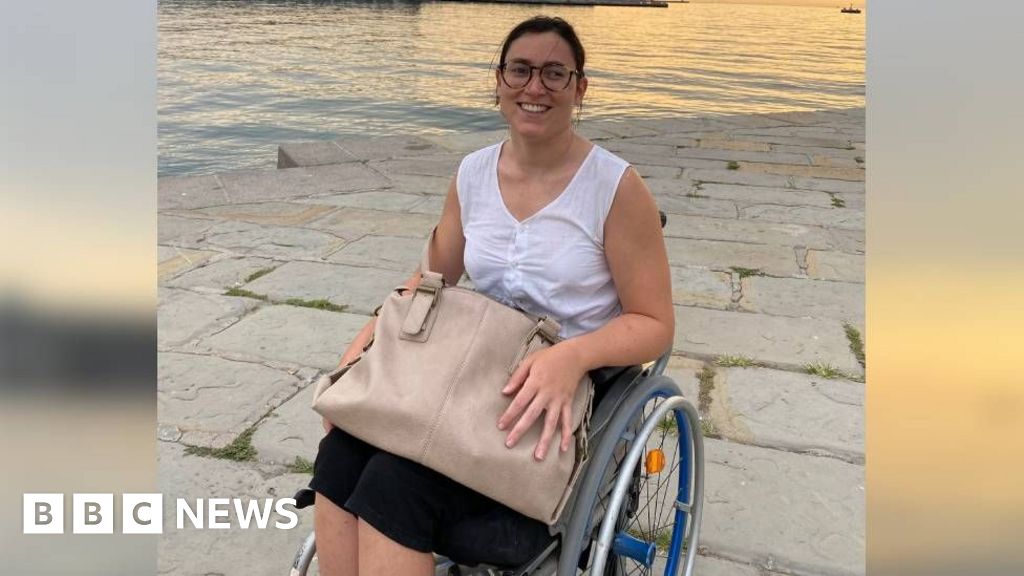
 Getty Images
Getty Images
Childline founder Esther Rantzen wants assisted dying to be legalised
Dame Esther Rantzen has said she thought she would be "long gone" by the time MPs debated assisted dying.
The broadcaster previously revealed she had joined Dignitas, the assisted dying clinic in Switzerland, after a terminal lung cancer diagnosis.
The Terminally Ill Adults (End of Life) Bill, which would allow some people to have a medically-assisted death, will be discussed in the House of Commons later.
While Dame Esther wants the law to change, those opposed fear people could feel pressured into ending their lives.
Esther Rantzen spoke to BBC Radio Solent's Lou Hannan ahead of the bill's second reading
Assisted dying generally refers to a person who is terminally ill receiving lethal drugs from a medical practitioner, which they administer themselves.
It is banned in England, Wales and Northern Ireland, with a maximum prison sentence of 14 years.
Under the bill, adults expected to die within six months could seek help to end their life.
Two doctors and a High Court judge would need to agree they were eligible.
Labour MP Kim Leadbeater, who is behind the bill, said it could prevent "distressing" deaths.
Dame Esther said she told Ms Leadbeater the current laws in the UK were "terrible" and "cruel" because they forced people to travel to Switzerland alone to die.
The Childline founder, who lives in the New Forest in Hampshire, said if her family went with her, they risked being prosecuted for assisting her death.
"I would much rather be able to die in my own home surrounded by people who are close to me," she said.
"But that choice won't be open to me, because even if we get a 'yes' vote in this debate... you can't get through the next stage in under a year.
"And my miracle drug is working jolly hard but I can't expect it to keep me alive for a year."

 Getty Images
Getty Images
Dame Esther said she told Ms Leadbeater the current laws in the UK were "terrible"
Dame Esther said she was surprised she was still alive to see the bill debated.
"To my astonishment, I appear to be still here and it's happening," she said.
Although she believes she will not live long enough to take advantage of a new law, she said she wanted to protect other families from "the same agonising experience".
"In the olden days, doctors would ease you out of life and the difference was it wasn't necessarily with your consent," she said.
"It wasn't part of the built-in safeguards, but in this new bill, it will be."
The bill has to be approved by MPs and peers before it can become law, with the first debate and vote taking place later.
 (1).png)
 4 weeks ago
4
4 weeks ago
4













